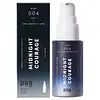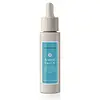What's inside
What's inside
 Key Ingredients
Key Ingredients

 Benefits
Benefits

 Ingredients Side-by-side
Ingredients Side-by-side

Helianthus Annuus Seed Oil
EmollientRosa Canina Fruit Oil
EmollientCarthamus Tinctorius Seed Oil
MaskingDimethyl Isosorbide
SolventRibes Nigrum Seed Oil
EmollientPunica Granatum Seed Oil
EmollientTocopheryl Acetate
AntioxidantCaprylyl Glycol
EmollientBakuchiol
AntimicrobialHydroxypinacolone Retinoate
Skin ConditioningUbiquinone
AntioxidantTocopherol
AntioxidantOxycoccus Palustris Seed Oil
AntioxidantAdansonia Digitata Seed Oil
EmollientRosmarinus Officinalis Leaf Extract
AntimicrobialEthylhexylglycerin
Skin ConditioningPhenoxyethanol
PreservativeHelianthus Annuus Seed Oil, Rosa Canina Fruit Oil, Carthamus Tinctorius Seed Oil, Dimethyl Isosorbide, Ribes Nigrum Seed Oil, Punica Granatum Seed Oil, Tocopheryl Acetate, Caprylyl Glycol, Bakuchiol, Hydroxypinacolone Retinoate, Ubiquinone, Tocopherol, Oxycoccus Palustris Seed Oil, Adansonia Digitata Seed Oil, Rosmarinus Officinalis Leaf Extract, Ethylhexylglycerin, Phenoxyethanol
Caprylic/Capric Triglyceride
MaskingHelianthus Annuus Seed Oil
EmollientHeptyl Undecylenate
EmollientSqualane
EmollientHydroxypinacolone Retinoate
Skin ConditioningBalanites Roxburghii Seed Oil
Skin ConditioningLimnanthes Alba Seed Oil
Skin ConditioningPersea Gratissima Oil
Skin ConditioningDimethyl Isosorbide
SolventOryza Sativa Bran Extract
Skin ConditioningHelianthus Annuus Extract
EmollientRosmarinus Officinalis Leaf Extract
AntimicrobialTocopheryl Acetate
AntioxidantTocopherol
AntioxidantCaprylic/Capric Triglyceride, Helianthus Annuus Seed Oil, Heptyl Undecylenate, Squalane, Hydroxypinacolone Retinoate, Balanites Roxburghii Seed Oil, Limnanthes Alba Seed Oil, Persea Gratissima Oil, Dimethyl Isosorbide, Oryza Sativa Bran Extract, Helianthus Annuus Extract, Rosmarinus Officinalis Leaf Extract, Tocopheryl Acetate, Tocopherol
Ingredients Explained
These ingredients are found in both products.
Ingredients higher up in an ingredient list are typically present in a larger amount.
Dimethyl Isosorbide is a low-irritation solvent that helps deliver actives into your skin. It is created from glucose.
Research shows how well this ingredient works depends on the active and formulation rather than the concentration alone. This means adding more Dimethyl Isosorbide does not guarantee better penetration of ingredients into the skin.
Helianthus Annuus Seed Oil is the oil derived from the seeds of a Sunflower. Sunflower seed oil is non-fragrant. It is an emollient, meaning it helps to soften the skin.
Sunflower seed oil contains many fatty acids. The fatty acids found in sunflower seeds include (from highest amount to least): linoleic acid, myristic acid, palmitic acid, stearic acid, arachidic acid, oleic acid, and linolenic acid.
These fatty acids help the skin create ceramides. Ceramides play a role in repairing the skin barrier.
Helianthus Annuus Seed Oil helps moisturize the skin. This in turn helps the skin look more rejuvenated and smoother.
Sunflowers are rich in vitamin E.
Historians believe Indigenous cultures of North America domesticated sunflowers before corn. Thus they relied on sunflower oil for a variety of uses. One such use is moisturizing skin and hair.
Sunflower seed oil may not be fungal acne safe. We recommend speaking with a professional if you have any concerns.
Learn more about Helianthus Annuus Seed OilThis ingredient is a retinoid. It usually goes by a more common name: "Granactive".
Hydroxypinacolone Retinoate (HPR) belongs to the class of retinoids that also includes retinol and tretinoin.
Retinoids have been proven to:
So what is the difference between all the retinoids?
Most retinoids need to go through a conversion line to become effective on skin. The ending product is retinoic acid. Retinoic acid is AKA tretinoin.
HPR is an ester of tretinoin. Emerging studies suggest HPR to have an added benefit that other retinoids don't have: Low irritation.
A study from 2021 found HPR to have the greatest stability when exposed to light and temperature out of all the commercial retinoids.
A note about naming:
The name "Granactive" is the trade name and the name most commonly used on packages.
Granactive is the name of the mixture - about 90% solvent and 10% HPR. A product with 5% granactive has 0.5% HPR.
Learn more about Hydroxypinacolone RetinoateRosmarinus Officinalis Leaf Extract comes from rosemary. Rosemary is native to the Mediterranean.
While Rosmarinus Officinalis Leaf Oil can be volatile due to its fragrant properties, the fragrance components are usually removed in the leaf extract.
Rosemary Leaf Extract contains many antioxidants such as rosmarinic acid and caffeic acid. Rosemarinic acid, a compound found in rosemary leaf, has been found to help soothe skin conditions such as eczema and acne.
Learn more about Rosmarinus Officinalis Leaf ExtractTocopherol (also known as Vitamin E) is a common antioxidant used to help protect the skin from free-radicals and strengthen the skin barrier. It's also fat soluble - this means our skin is great at absorbing it.
Vitamin E also helps keep your natural skin lipids healthy. Your lipid skin barrier naturally consists of lipids, ceramides, and fatty acids. Vitamin E offers extra protection for your skin’s lipid barrier, keeping your skin healthy and nourished.
Another benefit is a bit of UV protection. Vitamin E helps reduce the damage caused by UVB rays. (It should not replace your sunscreen). Combining it with Vitamin C can decrease sunburned cells and hyperpigmentation after UV exposure.
You might have noticed Vitamin E + C often paired together. This is because it is great at stabilizing Vitamin C. Using the two together helps increase the effectiveness of both ingredients.
There are often claims that Vitamin E can reduce/prevent scarring, but these claims haven't been confirmed by scientific research.
Learn more about TocopherolTocopheryl Acetate is AKA Vitamin E. It is an antioxidant and protects your skin from free radicals. Free radicals damage the skin by breaking down collagen.
One study found using Tocopheryl Acetate with Vitamin C decreased the number of sunburned cells.
Tocopheryl Acetate is commonly found in both skincare and dietary supplements.
Learn more about Tocopheryl Acetate